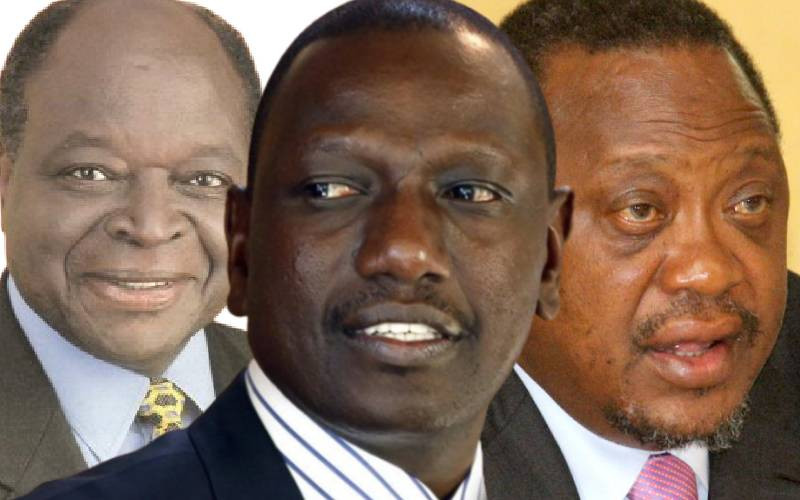By Kiratu Kamunya
Kenya: To weed out joy riders from his trip to China, President Kenyatta carried with him a huge business delegation drawn from a wide array of economic sectors including hospitality, banking and finance, mining, transport, building and construction, energy and agriculture which had to foot its own costs of travel.
This way, only the genuine entrepreneurs would board the plane in search of trade opportunities in the second biggest world economy.
Literally speaking, the President meant business from the onset. Careful analysis of what the trip means to Kenya reveals encouraging developments. During his breakfast meeting with the media a couple of weeks ago, the President was asked whether Kenya was turning east in view of increasing commerce between Kenya and China.
He gave an intriguing answer where he categorically stated that Kenya is neither turning east nor west but is turning to economic diplomacy aimed at Kenya’s economic transformation through realisation of sustainable double digit growth.
The company he kept in his trip to China clearly brands it a business trip. In the end, there is so much to show from the visit to China. To begin with, Kenya’s National Chamber of Commerce and Industry signed a memorandum of understanding with China’s Chamber of Commerce, Machinery and Electronics which is geared at promoting and boosting trade relations between the two countries.
Many Kenya entrepreneurs will be able to export more of their goods into the Chinese market after a platform was laid for future business-to-business engagements between Kenya and Chinese firms.
More and more Chinese investors will be expected to set up factories and industries in Kenya to manufacture for export back to China. This is bound to create employment along the production chain while providing a ready market for raw materials at a cheap cost of transport and preservation for perishable goods.
The Chinese will continue to offer technical and financial support to infrastructure development especially in road, rail and energy production.
This will not only stimulate economic growth through efficient internal movement of goods, services and people but is also important considering that Kenya continues to strategically position itself as the manufacturing, education, medical and transport hub of East, Central and the Horn of Africa region.
In this regard, it is critical to address the salient issue of energy production in a sustainable manner while dealing with the issue of cost which continues to hamper industrial growth. Chinese support in this endeavour is most welcome.
Of course the skeptics have dismissed China as a self-seeker out to exploit Kenya’s resources particularly in the energy sector considering that Kenya is on course to start exporting oil by 2016.
Robust marketing efforts
On one hand, those fears carry with them an aspect of truth. As one of the world’s greatest economies, China is hungry for massive energy to feed its gigantic production. The fact that this sort of production carries with it the need to tap into the global market is a no brainer and thus the robust marketing of Chinese products in Africa. In any event, bilateral relations are about mutual benefits to the contracting countries and China should not be an exception.
Granted, the trade imbalance between China and Kenya is lopsided in favour of the former. In fact, this was one of the major concerns that the visit sought to deal with. Indeed, there is now a lot of hope that measures have been and will continue to be put in place to level the playing field of commerce for the two nations.
Stay informed. Subscribe to our newsletter
To start with, the Memorandum of Understanding between them will see Kenya partnering with China for value addition of Kenyan products before export to increase their competitiveness on the international market.
Kenya will also diversify the number of products Kenya entrepreneurs export to China in order to tap into the vast Chinese market.
It was also resolved that there will be creation of more business linkages in Kenya with relevant Chinese business enterprises in order to help Kenyans to export more. Kenya at the same time paraded attractive incentives to Chinese investors in order to accelerate local production and employment creation.
The highlight of the visit of course was the appending of signatures by President Kenyatta and his Chinese counterpart President Xi Jinping to the projects and deals worth more than $5 billion among them the standard gauge railway connecting the port of Mombasa to Uganda, replacing the dilapidated century old railway line.
Without a shadow of doubt, Kenya stands to gain a lot more than naysayers would have us believe.
The writer is a lawyer with Maina Ngaruiya Advocates.
 The Standard Group Plc is a
multi-media organization with investments in media platforms spanning newspaper
print operations, television, radio broadcasting, digital and online services. The
Standard Group is recognized as a leading multi-media house in Kenya with a key
influence in matters of national and international interest.
The Standard Group Plc is a
multi-media organization with investments in media platforms spanning newspaper
print operations, television, radio broadcasting, digital and online services. The
Standard Group is recognized as a leading multi-media house in Kenya with a key
influence in matters of national and international interest.
 The Standard Group Plc is a
multi-media organization with investments in media platforms spanning newspaper
print operations, television, radio broadcasting, digital and online services. The
Standard Group is recognized as a leading multi-media house in Kenya with a key
influence in matters of national and international interest.
The Standard Group Plc is a
multi-media organization with investments in media platforms spanning newspaper
print operations, television, radio broadcasting, digital and online services. The
Standard Group is recognized as a leading multi-media house in Kenya with a key
influence in matters of national and international interest.









